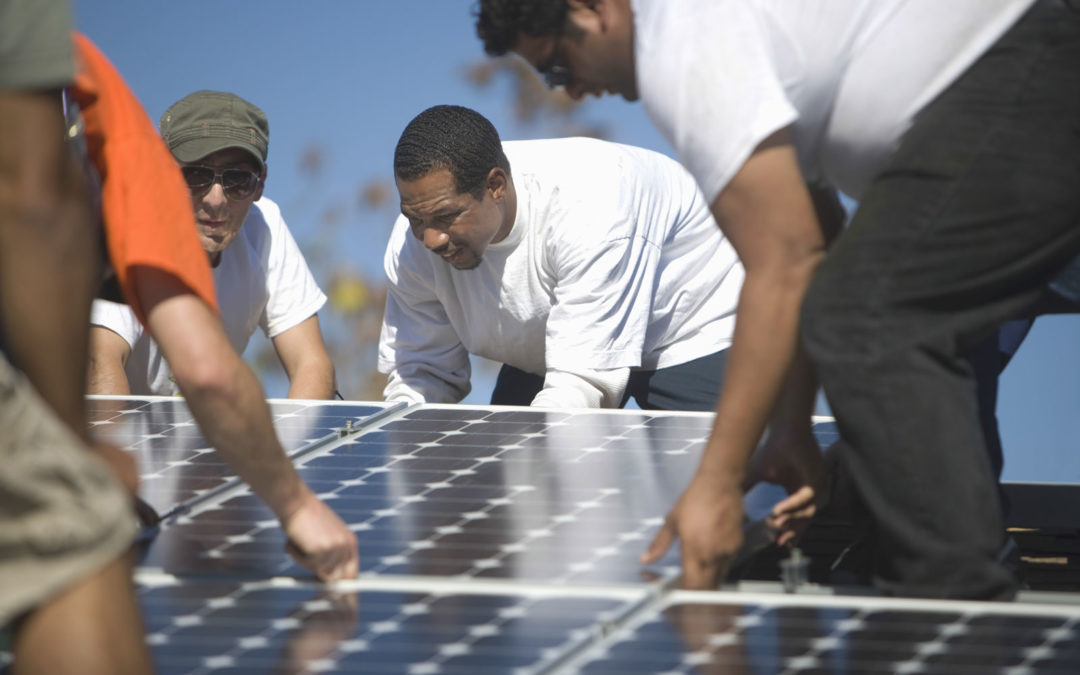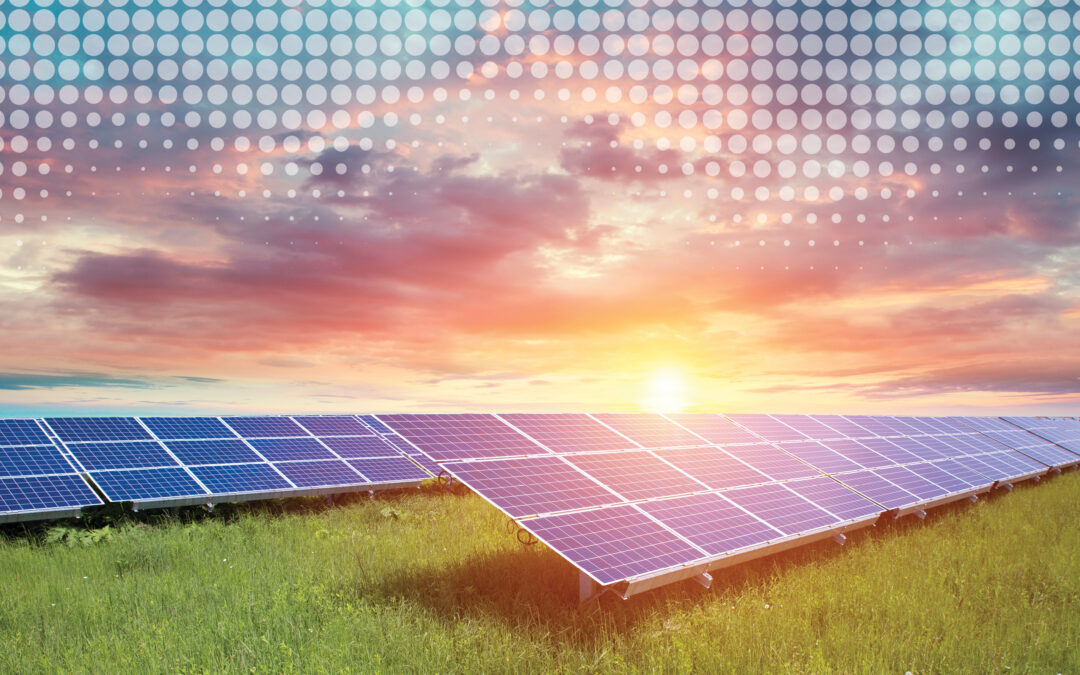
by Andrew Kell | Dec 27, 2022 | Electric Vehicles, Electrification, Energy Storage, Health, Netzero Wisconsin, Renewables, Solar, Wind
This past year, a Project Team consisting of RENEW Wisconsin, Clean Wisconsin, and GridLab commissioned Evolved Energy Research and Cambridge Econometrics to provide modeling, analysis, and reporting for a Wisconsin Zero Carbon Study. The recently released Summary Report provides an excellent overview of the Study results and policy recommendations. This RENEW blog provides additional context and insight into the next steps.
The Technical Report, titled Achieving 100% Clean Energy in Wisconsin, was completed this past summer and provides a first-of-its-kind, economy-wide modeling approach to envision a Wisconsin transition to a zero-carbon future by 2050. The modeling included 1) a baseline scenario as a comparison reference, 2) a 100% Clean Electricity scenario, 3) a Net Zero Economy-wide scenario (also referred to as NZEW), and four additional sub-scenarios that envisioned the NZEW scenario with policy and economic constraints. With NZEW by 2050 as a base assumption, these sub-scenarios further explored scenarios including a) No Transmission Expansion, b) Accelerated Clean Electricity, c) Delayed Action (of electric vehicle and building electrification), and d) Limited Coal and Gas.
The modeling results show a viable zero-carbon future by 2050, but it is a future that requires collaborative planning, supporting policies, and economy-wide investments.
A Grid Evolution
Wisconsin’s current resource portfolio relies heavily on fossil fuel-generating capacity. The figure below, which provides the baseline 2022 capacity assumptions from the model, shows that about 70% of Wisconsin’s current generating capacity relies on coal or fossil gas as fuel sources.
The following pie chart is listed in Gigawatts (GW).
In order to achieve a carbon-free future, clearly existing fossil fuel-generating capacity needs to be replaced with clean energy resources. However, when contemplating the decarbonization of all sectors of the economy, there also needs to be an expansion of generating capacity to serve Wisconsin’s electricity needs by 2050 – a lot more clean energy capacity.
Modeling of the NZEW scenario estimates that when Wisconsin decarbonizes the transportation, building, and other sectors, electricity use will increase by over 160% by 2050, well over doubling Wisconsin’s demand for electricity. Electrification of these sectors is often referred to as ‘beneficial electrification’ as the transition implies moving away from fossil fuels to decarbonized electricity as a fuel source.
To be truly beneficial, the timing of electric vehicle (EV) charging will be essential for load balancing and efficient use of utility infrastructure. This way, while overall electricity usage goes up dramatically, price signals, automatic controls, and utility programs will all allow EVs to charge optimally throughout the year. Currently, it is most economical to charge EVs at night when prices are low. In the future, it may also make sense to send signals to charge during peak solar production during the summer noontime.
The figure below illustrates the capacity expansion needed on the supply side to meet electricity demand growth.
As a result of decarbonization of the grid and beneficial electrification, Wisconsin's demand for electricity in 2050 would be supplied by an estimated 31 Gigawatts (GW) of solar, 21 GW of wind, 7 GW of storage, 7 GW of clean gas, 2 GW hydrogen electrolyzer capacity, and 3 GW of dual fuel electric industrial boilers located in Wisconsin. Of the 31 GW of solar, the model assumed about 2.5 GW would come from rooftop solar based on information from a solar rooftop potential study. Utilities would need to import additional clean energy capacity from outside Wisconsin. The model estimated that imported clean energy would come from about 9.3 GW of solar and 6.3 GW of wind from out-of-state resources.
The figure below provides a snapshot of the clean generation portfolio serving Wisconsin by 2050 under the Net Zero Economy-wide modeling results.
The following pie chart is listed in Gigawatts (GW).
Utility-scale clean energy resources at this scale also require the expansion of transmission investments. For each of Wisconsin’s interties with Minnesota, Iowa, and Illinois, the model estimates that 6 GW of transmission interties are needed for each of these three state interties. This equates to 18 GW of new transmission interties, which is about 3-to-4 times the amount of current Wisconsin transmission interties.
While gas capacity remains in all scenarios, gas serves as a reliability resource operating at just a 5% capacity factor and burning entirely clean, carbon-neutral fuels. In the ‘Limited Coal and Gas’ scenario, existing and less efficient gas units must remain online much longer and operate at much higher capacity factors because new, more efficient gas units are not allowed in this scenario.
In the ‘No Transmission Expansion’ scenario, in-state clean energy resources would have to expand by about 36% above the Net Zero Economy-wide scenario. In this scenario, all new generation capacity must be developed in Wisconsin, as higher capacity factor resources in other states cannot serve Wisconsin’s electricity needs. This scenario would also necessitate the expansion of ‘intrastate transmission’ within the borders of Wisconsin and add $1 billion in costs above the NZEW scenario.
Taking Emissions Down to Zero
In relation to a baseline scenario, the 100% Clean Electricity scenario will reduce total economy-wide carbon emissions by 24% by 2050. In this scenario, while the grid becomes carbon-free, transportation, building, and other sectors realize only modest decarbonization and still rely on fossil fuels to power cars, homes, and some industrial processes.
It is important to note that concentrating on the decarbonization of the electric grid by 2050 alone only gets Wisconsin to about a quarter of all reductions needed for a carbon-free future across all sectors of the economy. Additionally, in the Net Zero scenario, carbon sequestration and bunkering measures are needed to reduce emissions that come from marginal fossil gas resources. By 2050, a small segment of industries will still emit carbon, either because it is too costly to do otherwise or not technically feasible to eliminate completely. To achieve the target of zero emissions by 2050, the model chooses to rely on carbon sequestration, in which carbon is captured before being released into the atmosphere and then piped via pipeline to appropriate geologic sequestration areas in the country, safely sequestering the carbon.
A Real Benefits Plan
Following the Technical Report, Cambridge Econometrics released a report on The Economic Impacts of Decarbonization in Wisconsin. In combination with health outcomes modeled by Evolved Energy Resources, benefits of the Net Zero Economy-wide scenario include:
- $2 to $4.4 billion in avoided healthcare costs in 2050,
- 28 to 63 fewer deaths per million people from air pollution by 2050,
- 3% growth in Wisconsin’s Gross State Product by 2050, adding around $16 billion to Wisconsin’s economy,
- 68,000 additional Wisconsin jobs, and
- Lower energy costs for Wisconsin’s residents.
The benefits of a zero-carbon future outweigh the costs of the transition per the modeling results. Focusing on energy costs alone, economy-wide investments in renewable resources, heat pumps, EVs, etc., increase by about $111.1 billion in present value. However, the benefits of avoiding fossil fuel costs are about $110.6 billion in present value. When you add the health and economic growth benefits listed above, the net-zero investment makes sense from a business case perspective.
Jenna Greene, RENEW’s Energy Policy Fellow, is currently performing a cost-benefit analysis of the modeled scenarios using the Technical Report and Economic Impacts Report results. When cost-benefit results are available, this blog will be updated.
How We Get There
The transition to a zero-carbon future won’t be easy, as infrastructure build-out, technological innovation, and market development will be needed over the next few decades. As a result, we will need to form public-private partnerships, enact and implement policies, and design cross-sector planning processes that support this transition to ensure it is cost-effective. For quick reference, below is a set of key recommendations from a figure on page 19 of the Summary Report. A complete list of policy actions is provided at the conclusion of the Summary Report.
The release of our Zero Carbon Study is just the start of a dialog on how Wisconsin can reach zero carbon emissions by 2050. The Project Team is further collaborating with partners, businesses, legislators, and state and local government officials on the next steps. For further information, please contact Andrew Kell, Policy Analyst at RENEW Wisconsin, at andrew@renewwisconsin.org.
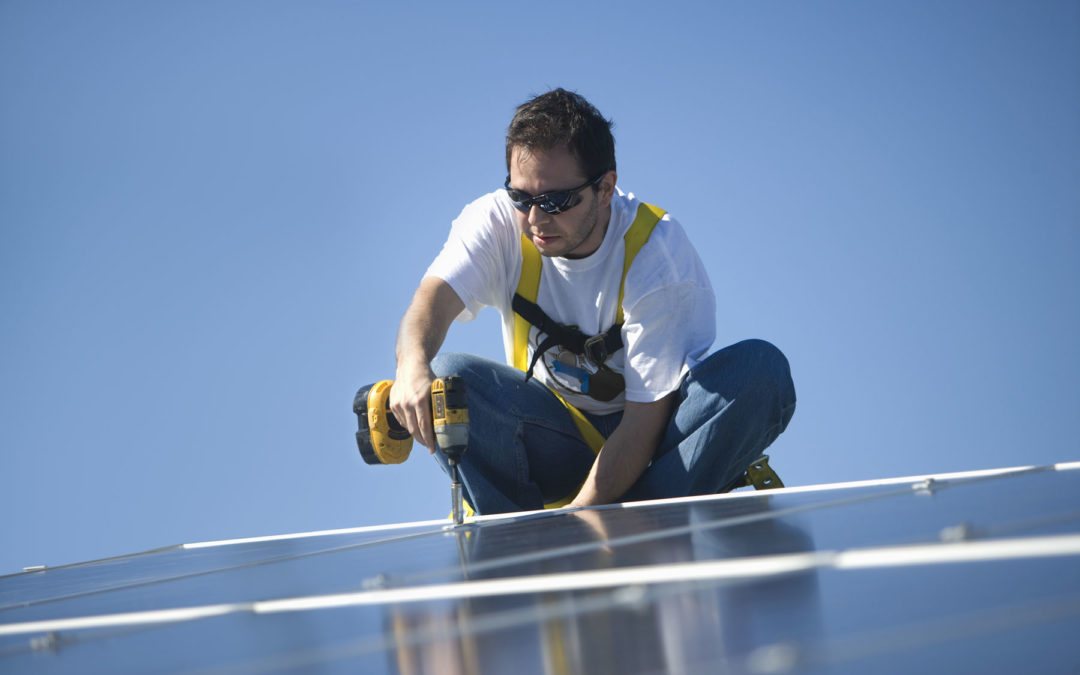
by Sam Dunaiski | Oct 4, 2022 | Renewables, Solar
This blog was originally published on April 21, 2020, and has been reposted with edits.
With solar energy becoming more popular and affordable, new solar firms are setting up businesses in Wisconsin. This competition is good for our solar energy market, but can also increase the possibility of bad business practices in the industry.
For example, three years ago, customers in southeast Wisconsin were left with incomplete projects after a Utah-based company failed to complete its solar arrays. In 2018, another solar firm failed to complete dozens of projects in Minnesota and Wisconsin, defrauding homeowners of over one million dollars. More recently, Minnesota Attorney General Keith Ellison sued 4 solar companies for fraudulent business practices, and the Attorney General’s office of Iowa is investigating a large uptick of complaints against solar companies accused of defrauding homeowners. Many customers are looking at payments for solar systems that are not fully connected, or in some cases, the company has neglected to do any work whatsoever.
Burke O’Neal of Full Spectrum Solar in Madison says that homeowners should exercise caution if they are solicited with a solar energy system for their homes. “Customers should look for installer experience and expertise,” said O’Neal. “Make sure your company has appropriate licenses and insurance. And look for a company with an office, truck, and warehouse. If a company asks for big payments upfront, that’s a serious red flag.”
As renewable energy advocates, RENEW wants to help Wisconsinites realize the promise of solar energy. These bad headlines can damage Wisconsin’s network of solar contractors and the concept of renewable energy as a whole.
If you’re considering solar PV for your home, here are a few important points to consider:
- Contact a reputable solar contractor. It can be very difficult to know who is reputable and who is not. You can begin by looking at our map here at RENEW Wisconsin, or this Midwest Renewable Energy Association list. You do not need to limit yourself to these lists, but this is a good place to start.
- Obtain at least three solar system proposals. This will help you choose the best system for your needs and budget.
- Cross-check your contractors with a third-party rating system. The Better Business Bureau, Consumer Affairs Office, Angie’s List, or other independent reviewers should provide insight on which companies are experienced and reputable.
- Find out if your contractors have a license to work in your area and if they have a licensed electrician on staff. Ideally, you’ll want to choose a NABCEP-certified contractor, but you do not need to limit yourself exclusively to these firms.
- Conduct more research. Talk to other homeowners who have gone through the process.
Once you are confident you’ve chosen a qualified contractor, have a representative from the firm answer these questions:
- How long have they been in business?
- How many systems have they installed?
- What warranties on labor and materials are offered?
- Who to contact if there’s a problem?
- Select a proposal. The firm will issue you a contract for the solar project. Examine the financials of the contract. Ensure the total price, payment schedule, and cancellation policy are spelled out. Make sure you understand all the warranties offered.
If your solar contractor can’t provide the answers to these questions, or if you’re unsure about the process in general, contact us at RENEW Wisconsin.
A home solar PV system is a major purchase, and it’s important to take the time to make the right decision for yourself and your home. If you’re considering purchasing a solar system, don’t hesitate to ask your solar contractor many questions. It can also help to talk with other homeowners who have gone through the process. Buying a solar array may feel overwhelming, but following these steps will help ensure you’re choosing the right company for the job.
If you have had a bad experience with a solar installation firm, you can submit a consumer complaint with the Department of Agriculture, Trade and Consumer Protection (DATCP). DATCP also has information on Solar Power Buying Tips and Home Improvement Consumer Tips.
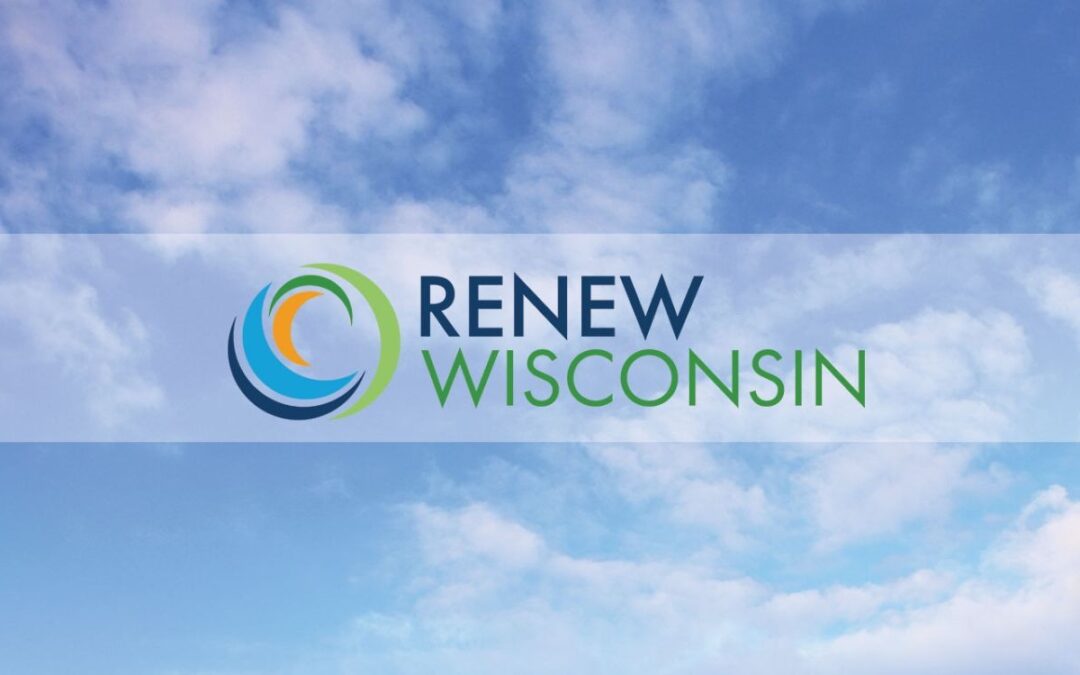
by Michael Vickerman | Sep 30, 2022 | Community Solar, RENEW Wisconsin, Renewables, Solar
After much internal deliberation, RENEW Wisconsin decided to end its 28-year membership in Customers First! Coalition (CFC). RENEW was a founding member of CFC, an organization whose diverse membership supported a balanced approach to shaping Wisconsin’s energy policy. For many years, RENEW’s participation in CFC yielded positive results in the form of legislation that served to drive utility investments in renewable generation, such as the state’s Renewable Portfolio Standard. However, as renewable energy technology and economics have advanced, we have had growing differences in various State policies that would allow utility customers to expand their renewable energy options. Because of this, RENEW Wisconsin felt we could no longer support many of the official positions of the CFC, and it was necessary to withdraw as a member.
RENEW sent a letter on September 28 informing CFC Directors of our decision to exit the coalition, listing three of the latest high-priority policy initiatives that RENEW supports and CFC opposes:
- Policies to affirm 3rd party financing of behind-the-meter renewables;
- Expansion of community solar options to serve all Wisconsin customers; and
- Customer-sited solar generation supplying power to commercial electric vehicle charging stations.
In explaining our advocacy for policies that CFC finds objectionable, we pointed to the continuing evolution in technology and economics.
While RENEW acknowledges the many benefits that Wisconsin energy consumers derive from effective utility regulation, it is crucial that our regulatory framework remain responsive to the ongoing evolution in renewable energy technology and economics. Distributed energy resources today can deliver a level of savings and operational flexibility to customers that were considered unthinkable 15 years ago. If Wisconsin is serious about clearing pathways for such beneficial electrification technologies as solar and storage, electric vehicle charging, heat pumps, and community solar, it must update and clarify the utility regulations that presently hinder customers from pursuing those options.
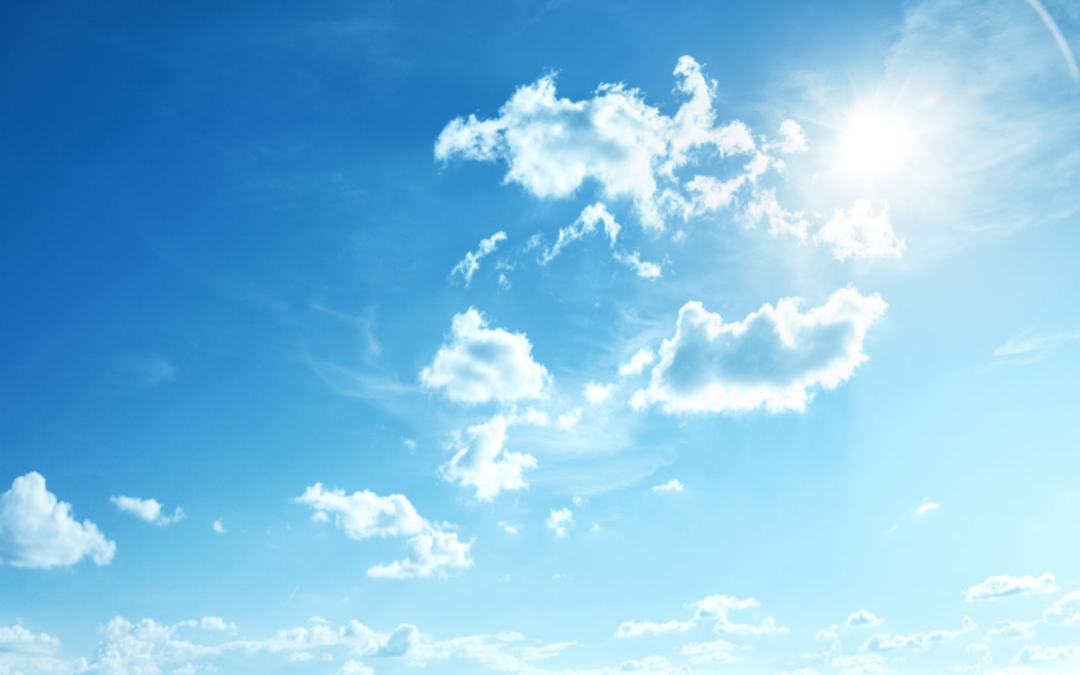
by Sam Dunaiski | Aug 31, 2022 | Advocacy, Biogas, Electrification, Energy Storage, Geothermal, Hydroelectric, Renewables, Solar, Wind
The world of clean energy received a monumental win earlier this month with the passage of the Inflation Reduction Act. The Inflation Reduction Act (IRA) will be the backbone of the United States’ effort to decarbonize our energy sector, spur clean energy implementation across all demographics, and significantly grow the clean energy economy.
Here is a breakdown of the bill’s elements:
Renewable Energy Generation
Investment Tax Credits
- Residential Solar: 30% Investment Tax Credit (ITC) on project costs until the end of 2032, with a step-down of 26% in 2033 and 22% in 2034. Credits are retroactive for residential installations from 1/1/2022, meaning that homeowners who installed a solar array at any point in 2022 will qualify for the 30% ITC.
- Commercial Solar: 30% ITC on project costs until the end of 2024 (ITC on commercial solar is also retroactive to 1/1/2022). Beginning in 2025, the ITC will be replaced by technology-neutral credits, with the following rules in place:
- 6% base credit; bonus credits up to 30% of costs if the project meets union labor, prevailing wage, and apprenticeship requirements. These requirements do not apply to projects less than 1 megawatt (MW) in size.
- 10% bonus credits if the project meets domestic content requirements.
- 10% bonus credits if the project is sited in an “energy community” – a brownfield site or a community with a recent coal plant closure.
- 10% bonus credits if the project is sited in a low-income community. This only applies to projects that are 5 MW and less.
- 20% bonus credits if the project qualifies as directly serving a low-income residential facility or another economic benefit system.
- Interconnection costs -for projects less than 5 MW- with the utility can be included in the credits.
Production Tax Credits
While the Investment Tax Credit applies to the upfront purchase of parts, materials, and labor, the Production Tax Credit (PTC) functions differently. This credit is a direct payment and applies to the production or output of the generation source. This generation source can be solar, wind, geothermal, biomass, and hydropower, to name a few. These credits are also retroactive from 1/1/2022.
Here is how the PTC breaks down:
- Direct pay value: $0.026 per kilowatt-hour (kWh) starting in 2022; rate rises with inflation.
- Bonus credit of 1.5 cents/kWh if union labor, prevailing wage, and apprenticeship requirements are met.
- 10% bonus credits if domestic content requirements are met.
- 10% bonus credits if the project is sited in an “energy community” – a brownfield site or a community with a recent coal plant closure.
- The PTC is available for nonprofits, state and local governments, rural electric cooperatives, tribal governments, and/or other tax-exempt entities. These organizations previously did not qualify for the ITC.
- PTC will also apply to utility-scale projects.
- Credits are available for ten years after the project is placed into service.
- Direct pay/PTC is not available for residential solar installations.
- PTC is transferable after 2022; however not for individual taxpayers.
- Commercial solar projects can choose either the ITC or the PTC.
Electric Vehicles
New EVs: (Effective 8/16/2022)
- $7,500 tax credit to be divided into two separate credits:
- $3,750 credit for electric vehicles with batteries produced in North America.
- $3,750 credit for electric vehicles using a certain percentage of critical battery minerals extracted or processed in the U.S.
- Vehicles meeting only one requirement will only be eligible for a $3,750 credit.
- Vehicles must cost less than:
- Vans < $80,000
- Pickups and SUVs < $80,000
- Cars < $55,000
- Income requirements:
- Joint tax return < $300,000
- Head of household < $225,000
- Single-payer < $150,000
- Credit will eliminate the limit of 200,000 vehicles per manufacturer.
Commercial Clean Vehicles: (Effective 01/01/23)
- Up to $40,000 tax credit for commercial electric vehicles.
Used EVs: (Effective 01/01/2023)
- $4,000 tax credit or 30% of the vehicle’s sale price.
- The vehicle’s model year must be at least two years older than the current “new” model year.
- Vehicle cost must be less than $25,000.
- Income requirements:
- Joint tax return <$150,000
- Head of household <$112,300
- Single-payer <$75,000
- Used EV tax credits will continue until the end of 2032.
EV-Charging:
- Credits for EV-charging equipment and infrastructure will increase up to $100,000.
- Equipment must be located in a qualified census tract, with similar bonus credits if prevailing wage and apprenticeship requirements are met.
- A direct pay or PTC option is available for charging with transferrable credits.
- Credits will be available until 2032.
Battery Storage
Effective as of 1/1/2023
- 30% ITC for the cost of installation; credits last until 2033. To qualify, batteries must be larger than 3kWh for residential installations and larger than 5kWh for commercial installations.
- Commercial battery credits have similar sliding scales as other ITC items: baseline of 6% with increasing credits for prevailing wage, labor, location, etc.
- Battery storage systems will no longer need to be coupled with solar generation systems to qualify for tax credits.
Energy Efficiency and Electrification
Effective as of 1/1/2023
Federal Tax Credit
- Heat Pumps: 30% of costs, up to $2,000
- Electric Upgrades: 50% of costs, up to $1,200/year
Upfront Discounts
- Incentive levels and eligibility are determined by income
- Heat Pumps: rebates for up to $8,000
- Electric Upgrades: up to $4,000 for breaker boxes/electric service; $2,500 for wiring, and $1,600 for insulation/venting/sealing
Manufacturing and Production
Effective as of 1/1/2023
- $30 billion in PTC to manufacture solar panels, trackers, inverters, wind turbines, batteries, and other critical minerals.
- Solar PV cells – $0.04/watt
- Solar-grade polysilicon – $3/kg
- Solar modules – $0.07/watt
- Wind components – 10% of the sales price
- Battery cells – $35/kWh
- Critical minerals – 10% of the cost of production
- $10 billion in ITC funding for building new facilities to manufacture clean energy products; $4 billion of these funds must be allocated to “energy communities.”
- $500M for manufacturing heat pumps and processing of critical minerals necessary for heat pump production.
Other Items
- Carbon Sequestration Credits (ITC or PTC) for facilities that begin construction before 2033 and provide direct air capture of carbon dioxide. Credits will be issued by a metric ton of carbon capture.
- Clean Hydrogen – credits for production -by unit- of green and blue hydrogen that can be used to offset traditionally carbon-based fuels.
- Sustainable Aviation Fuel – credits for SAF produced by unit (gallon) with increasing credits based on a percentage of greenhouse gas reduction.
- Biodiesel/Alternative Fuels – production credits for fuels produced based on life-cycle emission levels.
- Methane Fees – fees imposed by EPA for facilities that emit more than 25,000 metric tons of CO2 annually.
Additional Provisions
- $500 million for the Defense Production Act, some of which could be used for solar manufacturing.
- Greenhouse Gas Reduction Fund totaling $29 billion overseen by the Environmental Protection Agency.
- Climate Pollution Reduction Grants to state and local governments totaling $5 billion.
- Environmental and Climate Justice Block Grants: $3 billion for disadvantaged communities.
- $2 billion in loan authority for new transmission construction in designated national interest corridors.
- $760 million for the Department of Energy to issue grants to state, local or tribal entities to facilitate siting of high-voltage interstate transmission.
- Additional $1 billion for rural renewable energy electrification loans and expansion of the program to include storage.
- Additional $1 billion for Rural Energy for America Program (REAP), with total grants limited to 50% of the total cost of an eligible project.
- $9.6 billion for loans and financing for rural co-ops to purchase renewable energy, generation, zero-emission systems, and related transmission, limited to 25% of total cost.
- Incentives for build-out of electric vehicle charging networks.
- Extension, expansion, and changes to electric vehicle tax credits, including a new credit for purchasing used EVs.
Conclusion
Much of the implementation and administration of the Inflation Reduction Act is still not understood. This document is meant to summarize the items in the bill that RENEW Wisconsin considers particularly important to the clean energy transition in our state.
For additional information, please utilize the following resources:
Please contact Sam Dunaiski (sam@renewwisconsin.org) with questions.

by RENEW Wisconsin | Aug 15, 2022 | Advocacy, Community, Electrification, Policy, Press Release, Renewables
After decades of inaction punctuated by occasional half-measures, Congress has passed monumental legislation committing the nation to pursue a clean energy transformation that will benefit all sectors of American society.
The enactment of the Inflation Reduction Act, which cleared the House of Representatives today, will signal to the rest of the world that the United States is “all in” on decarbonizing the domestic economy while greatly expanding investment and career opportunities in the clean energy arena.
Specifically, this legislation represents a 10-year commitment to scaling up the deployment of clean energy technologies, electric vehicles, and electrified heating and cooling systems produced and delivered by U.S. companies.
With its emphasis on strengthening America’s productive capacity and workforce to deliver clean energy to our fellow citizens, this legislation is genuinely an industrial-strength response to the climate emergency enveloping our planet.
We at RENEW look forward to working collaboratively with federal and state agencies, businesses, farmers, local governments, and schools to help deliver the benefits of the clean energy transformation to every Wisconsinite.


